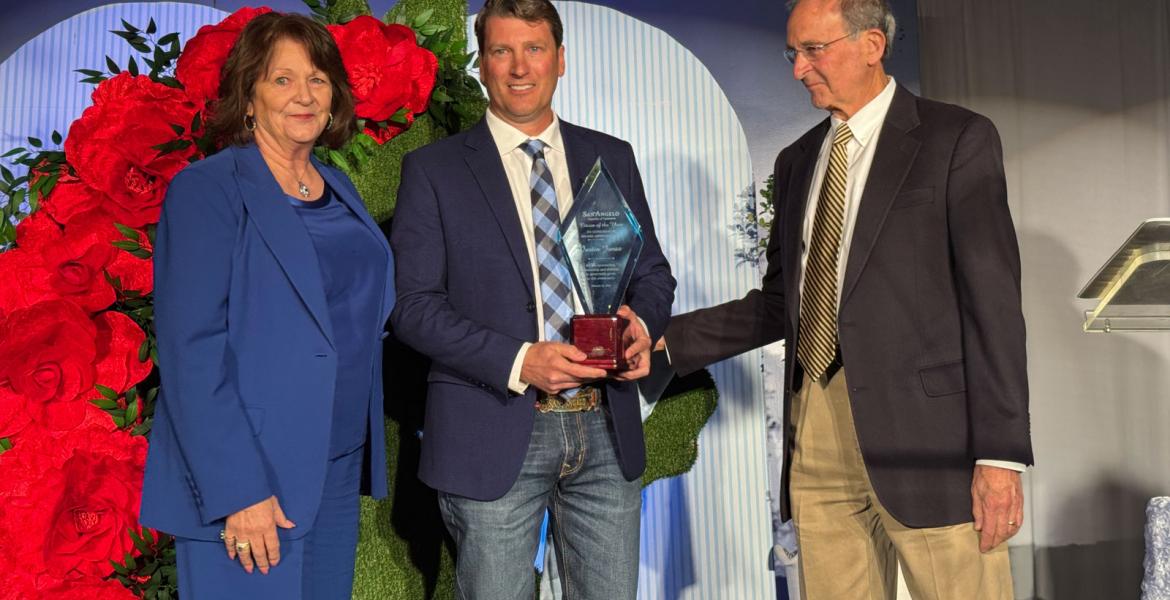CALLAHAN COUNTY, TX — A widow who owns land in Callahan County located southwest of Cisco and between Cross Plains and Putnam wants a wind energy company to answer for destroying her land. According to her lawsuit, originally filed in a Callahan County State District Court, workers from the Ranchland Wind Energy Project, that is partly owned by JP Morgan Chase and is also part of the Enel Green Power family of green energy plants located all over the world, cut down 1,200 trees and the workers defecated on her land when constructing the wind turbines.
Joan Schrader, who manages her late husband Hugh’s estate that owns the land, and her family are asking for damages exceeding $1,000,000 plus punitive damages.
According to the lawsuit, when installing the wind farm, workers from Ranchland cut down or severely damaged 1,200 trees. “Many of the trees were 50-250 year old trees,” the lawsuit stated. The Schraders claimed that the destruction of that many trees will certainly cause loss of topsoil, increased erosion and a loss of habitat for wildlife. The trees were not all of the damage the Schraders noted in the lawsuit.
The family claimed that the wind energy company destroyed deer stands, feeders and fencing. The turbine-installing crews left garbage and “assorted debris” on their land and never removed it. Included in the debris was “a considerable amount of human waste.”
“Defendants' employees apparently defecated on the ground instead of using a nearby port- a-potty,” the lawsuit stated.
The Schraders also claimed in the lawsuit that an agent for Ranchland made an oral agreement to compensate the family for each tree destroyed. The tree agreement wasn’t made in writing and was with presumably a construction foreman the family claimed was an agent of Ranchland.
Accordingly, Ranchland et. al. denied all claims the Schraders made in its lawsuit response. In addition, Ranchland asserted that the so-called “Tree Agreement” fails “for lack of consideration.” The question to be argued in court will be if an oral agreement made after a written agreement is signed is enforceable. Ranchland also claimed that the supervisor making the Tree Agreement had no authority with Ranchland to execute a contract and that the terms of the agreement were vague.
The family’s accusations are peculiar, however, in that Enel, the company that touts this wind energy project on its website claimed it was standing by “skilled tradespeople” and brought hundreds of jobs and millions into the local economy. Enel claimed 63-turbine project will eliminate 643,000 tons of CO2 emissions annually to power 94,000 U.S. households.
If anything in the lawsuit is true, it is damning of the green energy company. This is because the company touted a “sustainable worksite” for the turbine project following the Created Shared Value (CSV) model.
According the the Harvard Business School regarding CSV, “When businesses act as businesses—not as charitable donors—they can improve profitability while also improving environmental performance, public health and nutrition, affordable housing and financial security, and other key measures of societal wellbeing. Only business can create economic prosperity by meeting needs and making a profit, creating infinitely scalable and self-sustaining solutions.”
The Harvard definition of CSV further stated that CSV will reshape capitalism “and its relationship with society.” This will “legitimize business again.”
Following the tidbit about CSV and reshaping capitalism, Enel claimed:
“When we build projects, we monitor sustainability performance for energy, waste and water management, and the economic impact on the local community. Enel Green Power is constantly monitoring the status of the COVID-19 pandemic; the Ranchland wind + storage site has implemented safe working practices, strict travel guidelines, social distancing, office and project site sanitation, and other best practices to protect the health of its workers and the community in which it operates.”
COVID-19 is spread through human feces among other ways. If the lawsuit is true, how is defecating at the job site a best practice for the health and safety of the wind farm’s workers?
And how is chopping down 1,200 trees good for sustaining the environment?
Enel’s CEO, Francesco Starace, was said to be “a driving force behind Europe’s move to sustainable energy.” He was interviewed on the Blackrock “The Real Leaders of Net Zero Miniseries” podcast. During the podcast, he stated that, “You can’t have innovation if you don’t want to have mistakes.”
Was cutting down 1,200 trees and pooping on the widow’s ranch land a mistake or malice? Or did it happen at all? This is what the jury trial will determine. The lawsuit was moved from state district court to the federal district court in Abilene. Both parties have agreed to a trial date in May 2024, according to the most recent filing on the docket.
Subscribe to the LIVE! Daily
Required






Comments
Listed By: sanglo expat
This sounds like fodder for a question on the BAR exam. Part of it deals with the frailities of verbal contracts (they should be avoided unless you REALLY know and trust the other individual) and "consideration" as defined in tort law.
After suffering a bad experience that cost me more than I cared to lose, I'm not doing jack business-wise in the future without an attorney at my side. Yeah, they can be a pain in the butt, but they can also save that same butt from a lot of unneeded pain.
Admittedly I know little about this particular case. At this point my sympathies lie with the landholder regarding the contractual issues. All this stuff about "damning the green industry" is a load of deflecting crap. It really sounds like "Green bad, not green good" when it comes to morality... which is nonsense.
And this poop thing? Idiotic.
- Log in or register to post comments
PermalinkPost a comment to this article here: